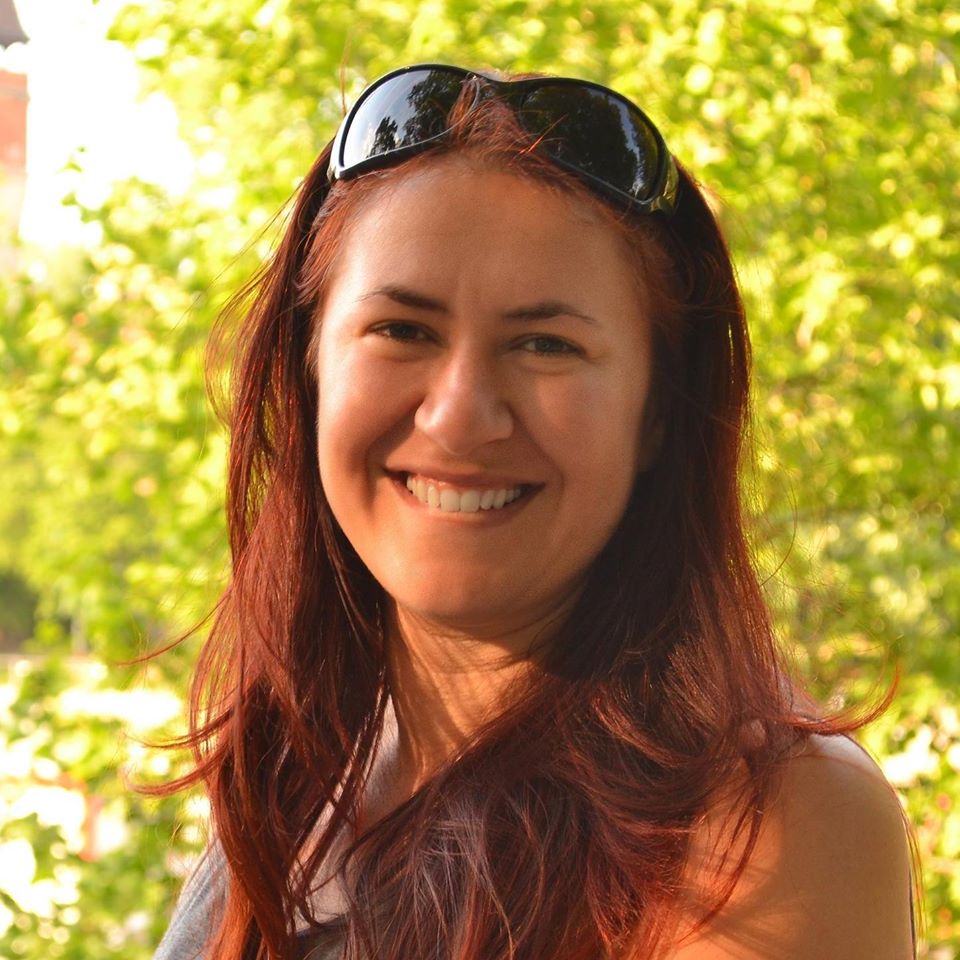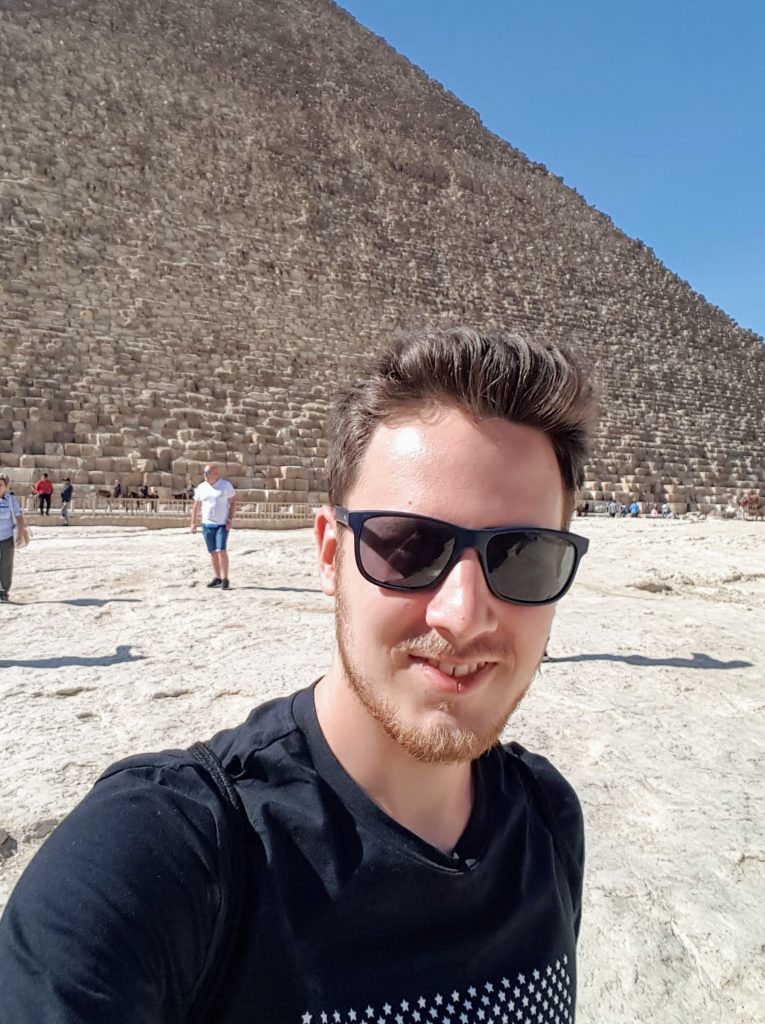Interview to Éva Gugán, mentor of Campus Pro Bono Hungary
András F. Tóth, director of our partner ÖKA (Hungary), conducted this interview to Éva Gugán, employee of Accenture and mentor in one of their previous Campus Pro Bono Pilot Program.
András F. Tóth (AFT): Could you introduce yourself and tell us who you are and what is the field you are working on?
Éva Gugán (EG): I’m working at Accenture Hungary. Accenture itself is a global consulting company, currently with over 500 thousand people employed round the globe. In Hungary, we have 400 employees and I’m leading all the recruitment activities here for three years now. Before that, I was also engaged in the area of HR.
AFT: What was your motivation to join BEESE project as a corporate mentor?
EG: I’m always interested in being in touch with university and college students, understanding them, having a look at their daily lives. I think, it is very important from a corporate sector perspective, also I’m a very, very big fan of any kind of voluntary activities. That is why I’m doing it and I’m very happy it is getting more and more popular so I’m very keen on helping any other people volunteering.
AFT: Have you participated in any other pro bono projects before as part or outside of your work?
EG: My latest engagement in the field of pro bono was delivering an interview technique training for people who are marginalized by society, having difficulties finding a job.
AFT: Could you tell us about your role in the BEESE project? What solutions you were looking for? To whom you were trying to help in this project?
EG: In this project, students were looking for sings and reasons for alienation of elderly people, starting in Hungary then narrowing it down to Budapest or to a certain district. Based on the level and type of alienation, they were looking for solutions, how these people could be helped. My task was mostly about supporting students build up this volunteering project.
AFT: How can we imagine this? How many times did you have meetings or consulting sessions? Was it face to face or online?
EG: I’ve met the students twice when we had about one hour long conversations, which were quite deep. It was difficult at the beginning that we were very distant from each other. Also, they received this task as an extra task from a coordinator, so they were trying to build it up as per their requirements. I was keen to understand what was going on both in the plan and in their heads and how I can be of best support. The first discussion was mostly about understanding each other and what our common goals are, what the differences in our point of views might be and how to come to a common platform. The second time we met they were coming with a much more narrowed down plan and it was mostly about focusing on the areas to execute the program itself.
AFT: Did you have consultations in between, either on the phone or online?
EG: No, it was limited to the mentioned two meetings.
AFT: What were the most important solutions students were looking for during the project? What was the essence of their work?
EG: Their main goal was to generally examine the reasons, causes, levels and paths of alienation of elderly people. The second part of the project was to look at how to support them in stopping this alienation. They were looking at those who are less alienated, what is the reason for this and they also tried to find out what they can do to help those struggling. This is what I was trying to support, mostly by discussing how to focus their efforts so that they were realistic. We went through a goal setting method, discussing how reasonable goals can be set, which they followed in their research.
AFT: You partly answered my next question, but you might have something to add. What was your role? How could you support the work of the students?
EG: I think my role was mainly about focusing the efforts. When students started their goal was beautiful but was too wide. It would have been great to carry it out but students required more resources than they had, both in terms of human resources and time or any other type of capacity. My role was to set realistic goals corresponding to the original one which could also meet the resources they had.
AFT: How was the cooperation with the students in general?
EG: I think it was easy. Students were very open, interested, obviously they were clever and motivated to do this project, which is the most important part. The only difficulty was that we were coming from different places, we had different understanding of things and ways of approach, but I think this is normal.
AFT: Were there any obstacles or major difficulties during the project?
EG: For me the only difficulty was to find the best way to help the students. I was not sure whether the guidance I was giving was the one they were looking for, but we had discussions on this, so I was asking them if they are interested in something else let’s talk about that. Their feedbacks on the approach were generally positive. This was not a main obstacle, it was rather coming to the same page.
AFT: Do you think it is a good idea to put mentors or experienced consultants next to students in pro bono projects?
EG: Yes, absolutely.
AFT: Which techniques worked well? What are your top 3 advices for those who engage in similar student pro bono projects in the future?
EG: I’d say enjoy, listen and repeat. My most important advice is to enjoy it. For someone who has been working in the corporate sector for a long time, usually with a narrowed down field of expertise it is a breath of fresh air to have a discussion with students who are not linked to the company but have something totally different in mind, such as a pro bono project. It is widening one’s perspective and is something to enjoy. The other thing is that you should be prepared to listen carefully. In the corporate sector we are used to understand each other from half sentences and to know what the next step is. Here, you must be totally clear with yourself and with the mentees to ensure we are not losing each other and that we are giving the maximum support. And the third one is to repeat it, simply because it is fun.
AFT: Do you think this experience contributes to the employability of the students? You are working in recruitment and might have special insight. We, as organisers of this project, assume that pro bono contributes to the experience and knowledge of students. What do you think about it?
EG: Regarding the increased employability, I think you are right to assume that pro bono projects are helpful. From their perspective, they have the chance to meet someone from corporate sector, most likely a senior person. On the other hand, just as the discussions are like a breath of fresh air for someone working in corporate sector, it must be the same for the students. The way of thinking, speaking, approaching an issue must be very difficult for them so it should open their eyes and might change their perspective. Obviously, the way they are using the information, whether they are following up on issues is up to them, but it can help.
AFT: Looking at the corporate side, we assume these pro bono projects will be interesting for companies. Do you agree with this? Why it can be useful for corporations to partner with universities and intermediaries to support such projects?
EG: First, I’d say simply because it is volunteering and why not volunteer? As simple as that, whoever is open for this kind of activity should try it because it is an interesting way to give something back to society. From investment perspective, when we expect something in return, I’d say we get the chance to have a closer look on what is going on in the mind and life of young people, across universities and colleges, which is always crucial for the corporate sector because they are the next generation of workers. Any kind of closer understanding of them can greatly help our recruiting, hiring and training efforts. Additionally, we have a networking system with them.
AFT: Do you think it is beneficial and is also in interest of companies to contribute and financially support such initiatives?
EG: I think yes, if we are looking at a company as a volunteering entity that gives back to the society not only because they want to but also because this returns value to some extent to the company as well. Anything that supports the growing of a given community, on the long term, helps the company to grow as well.
AFT: Is there any additional advice or personal story you think would be useful to share?
EG: I think it would have been nice to get the mentors more prepared, for example by giving them brief description on what they can expect from the mentees and what kind of guidance they should give them. It would have made cooperation smoother and more efficient. In general, I think it is a nice, very interesting program and I’m looking forward to see how it evolves.
AFT: Do you think it’d make sense to bring NGO-s, students and mentors together sometime? Do you see any added value in it?
EG: It definitely could, I’m just not sure it is feasible. But it’d be one way to build good relationship.
AFT: If you had the chance, would you repeat this experience you gained during this program? Would you also recommend it to your colleagues?
EG: Sure, absolutely.



